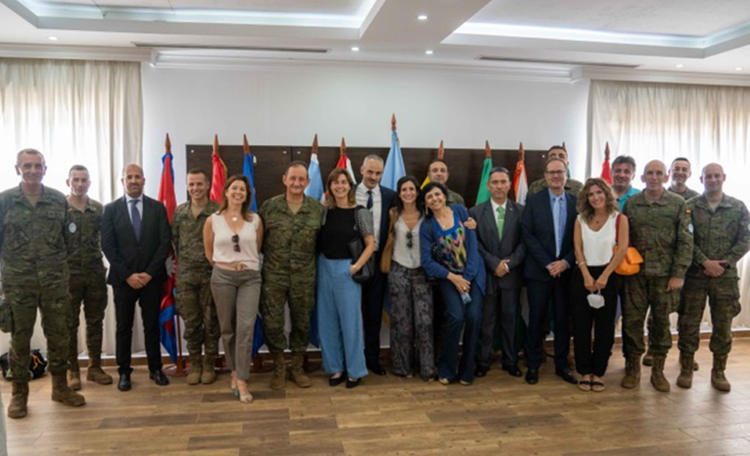The Diplomat
Two teams from the Fundación Internacional y para Iberoamérica de Administración y Políticas Públicas (FIIAPP), a public entity linked to the Spanish Cooperation, have visited the Spanish troops deployed in Lebanon to learn first-hand about their humanitarian work with civilian populations.
The two teams, involved in the FIIAPP projects in Lebanon Support to community policing in Lebanon and Advancing the fight against terrorism for Lebanon’s security, made a joint visit to the Miguel de Cervantes Base in the town of Marjayoun, in the south of the country, headquarters of the United Nations Interim Force in Lebanon (UNIFIL) Eastern Sector Headquarters, led by Spain under the command of General Ignacio Olazábal. The UN peacekeeping mission has been led, since February this year, by another Spanish general, Aroldo Lázaro Sáenz.
During the visit – which took place in mid-July but was made public by FIIAPP at the end of the month through a press release – the two teams were able to see first-hand the work of the blue helmets, especially those guaranteeing humanitarian access to civilian populations, and had the opportunity to see and appreciate all the equipment available to the Lebanon XXXVII Brigade under the command of the Libre Hidalgo operation.
Consuelo Navarro, coordinator of the Support to the Proximity Police project, thanked General Olazábal and the Spanish Embassy’s Defense Attaché, José Fernández Alfaro, for their “detailed explanation of how the mission works” and their “presentation of the Spanish tactical capabilities in the field”. For his part, the project team leader, Joaquín Placencia, acknowledged to the Guzmán el Bueno brigade “the work carried out by the Spanish troops for and on behalf of the Lebanese community, transcending military functions by also prioritizing a human rights and proximity approach in all their actions”.
For his part, the director of the Counter-Terrorism and Security in Lebanon project, Koussay Boulaich, highlighted “the commendable work of our troops” in complying with UN Security Council Resolution 1701, and “the importance of knowing and coordinating the work of two key Spanish actors for the stability and development of the security forces’ capabilities”.







